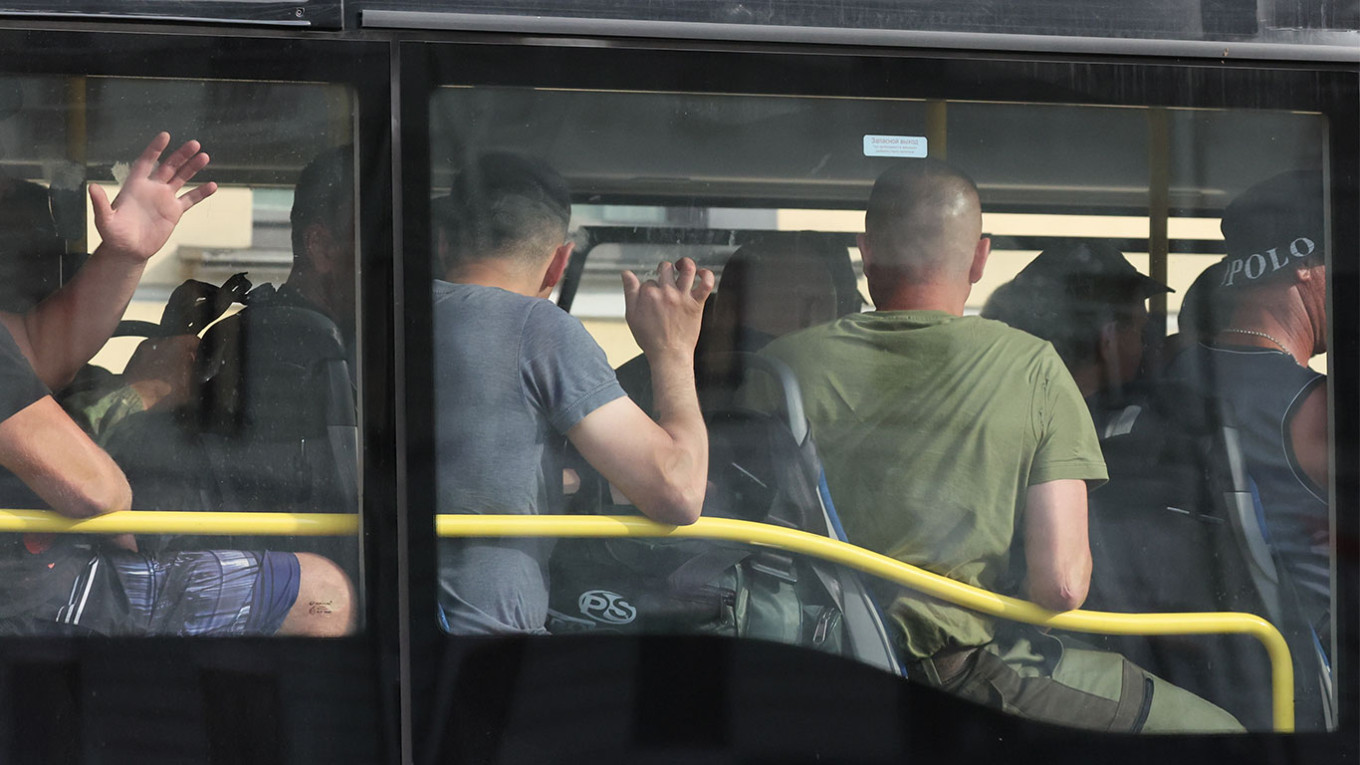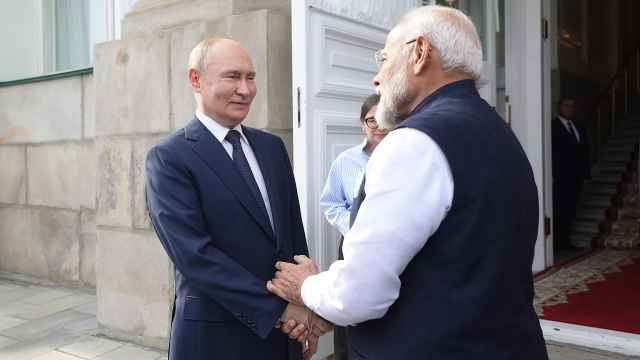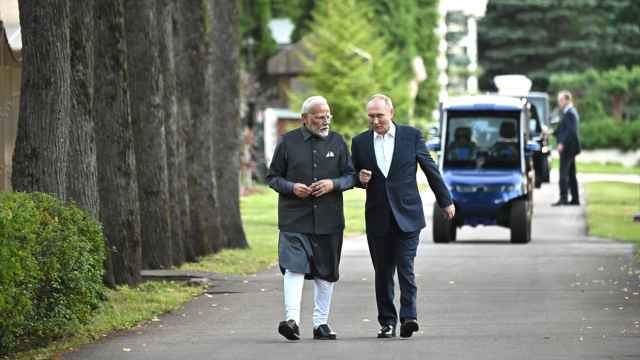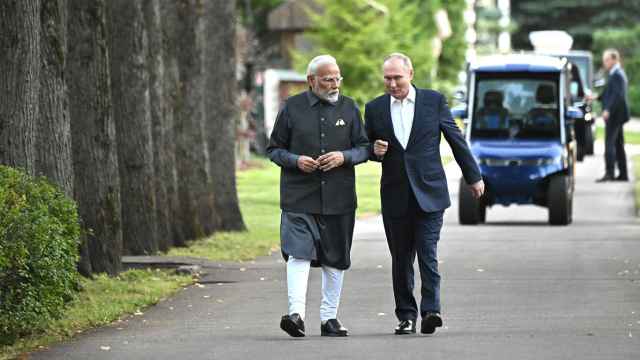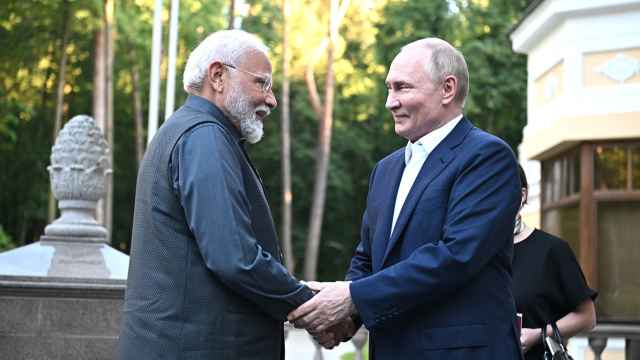An apple farmer, an airline caterer and an out-of-work graduate are among the Indian nationals to have been recruited into the Russian military as it wages war on Ukraine.
Two years into the war, tens of thousands of Russian soldiers have died in the conflict, and Moscow is on a global quest for more combatants, sometimes with the help of informal intermediaries.
An Indian translator working at a military recruitment centre in Moscow told AFP journalists in New Delhi that his facility was just one in a whole network across Russia.
"Every major city has a recruitment center where foreign nationals are processed," he said.
The translator said he had personally overseen the enlistment of between 70 and 100 Indian citizens, adding that the number of Nepali recruits was much higher.
"Only last week, 10 Indians came to my center," said the man, who spoke on condition of anonymity.
Some Indian recruits told AFP they were promised non-combatant roles, but they were trained to use Kalashnikov assault rifles and other weapons before being sent to Ukraine.
A Russian-language Defense Ministry contract seen by AFP refers to "military service in the armed forces of the Russian Federation," with a requirement to "participate in hostilities" and "serve the Russian people without limit."
India is a longstanding ally of Russia which has shied away from explicit condemnation of the invasion of Ukraine.
Analysts say Moscow's efforts to target recruits from India are just part of a global recruitment drive, alongside a vast enlistment campaign at home.
AFP spoke to five Indians recruited to join in Russia's war effort, all of whom said they had responded to social media videos promoting jobs as "army helpers" for salaries of around $1,200 a month.
None had prior military experience.
'I am scared'
The recruitment clips were posted by a Dubai-based agent, Faisal Khan, who has a presence on YouTube, Instagram and TikTok as Baba Vlogs.
In one video, Khan walks down a street in the city of St. Petersburg, explaining the offer: pay him $3,600 and get a job as a helper in the Russian army.
"You don't have to fight," he says.
"All you have to do is to clear demolished buildings, look after armories and after a year of service you'll be eligible for permanent residency."
Khan claimed to have received an avalanche of enquiries from India, where despite rapid economic growth, unemployment is at a record high.
By his own account, Khan helped 16 Indian nationals travel to Russia in November and December, most of whom came from India, while some came from Dubai.
"I am into social media and help people find jobs," he told AFP.
"A friend from Russia got in touch with me saying that the military there was looking for helpers, I thought it was a good opportunity and I made a video."
But he said he had been "taken aback" when recruits were issued weapons, as well as when "reports began coming in of bodies being sent back, and some returning injured... we decided to put a stop to the recruitment process."
But his recruitment video, entitled "Russia Army Jobs," remains accessible online.
One of Khan's recruits, an unemployed graduate from Uttar Pradesh in northern India, told AFP he had fought on the front line in eastern Ukraine's partially occupied Donetsk region.
"I was hurt in the fighting and taken to the hospital from where I somehow escaped," he said from Moscow.
Another recruit from India said he had been stationed in the Kherson region alongside another Indian national — an apple farmer from Kashmir — and nine Cubans who were awaiting deployment to the front line.
"I can be called over to fight anytime," said the 27-year-old, who used to work at an airline catering company.
"I am scared and I just want to go home."
Several of the recruits AFP spoke to have shared pictures of themselves in military fatigues with their families back home.
AFP geolocated many of the images to a Russian military facility near Moscow.
One of the Indians said he had fled after beginning basic training.
Sheikh Mohammad Tahir, 24, traveled to Moscow in December.
"As soon as they made us train in arms, I realized something was amiss," he said. "Since I had not surrendered my passport until then, I bought a flight ticket and got out."
Neither Russia nor Ukraine say how many foreigners are serving in their militaries or how many they are being held as prisoners of war.
Moscow is believed to have hired thousands of foreign combatants, hundreds of them from India's poverty-stricken neighbor Nepal.
"There are reports that mercenaries from the Middle East and Asia are involved in the fighting on the Russian side," said Oleg Ignatov, an analyst at the International Crisis Group.
Ignatov said Russia was also "trying to recruit mercenaries in Africa."
'Better life'
India's Foreign Ministry has confirmed some Indian citizens have signed up for "support jobs" with the Russian army, without specifying whether they were combat roles.
The ministry said several of them had been discharged as a result of its interventions with Russian authorities.
But families of the recruits say they were tricked, and they blamed Indian authorities for not doing enough to help them return home.
Mohammed Imran, a trader in Hyderabad, has not heard from his 30-year-old younger brother for nearly two months.
His brother last called from the southern Russian city of Rostov-on-Don to say that he had been deployed to the front line in Ukraine.
"One of the boys who was with him and managed to escape told us my brother had been wounded by a bullet," Imran told AFP.
"He went so that he could offer a better life to his family, now we don't know if he is even alive."
A Message from The Moscow Times:
Dear readers,
We are facing unprecedented challenges. Russia's Prosecutor General's Office has designated The Moscow Times as an "undesirable" organization, criminalizing our work and putting our staff at risk of prosecution. This follows our earlier unjust labeling as a "foreign agent."
These actions are direct attempts to silence independent journalism in Russia. The authorities claim our work "discredits the decisions of the Russian leadership." We see things differently: we strive to provide accurate, unbiased reporting on Russia.
We, the journalists of The Moscow Times, refuse to be silenced. But to continue our work, we need your help.
Your support, no matter how small, makes a world of difference. If you can, please support us monthly starting from just $2. It's quick to set up, and every contribution makes a significant impact.
By supporting The Moscow Times, you're defending open, independent journalism in the face of repression. Thank you for standing with us.
Remind me later.


